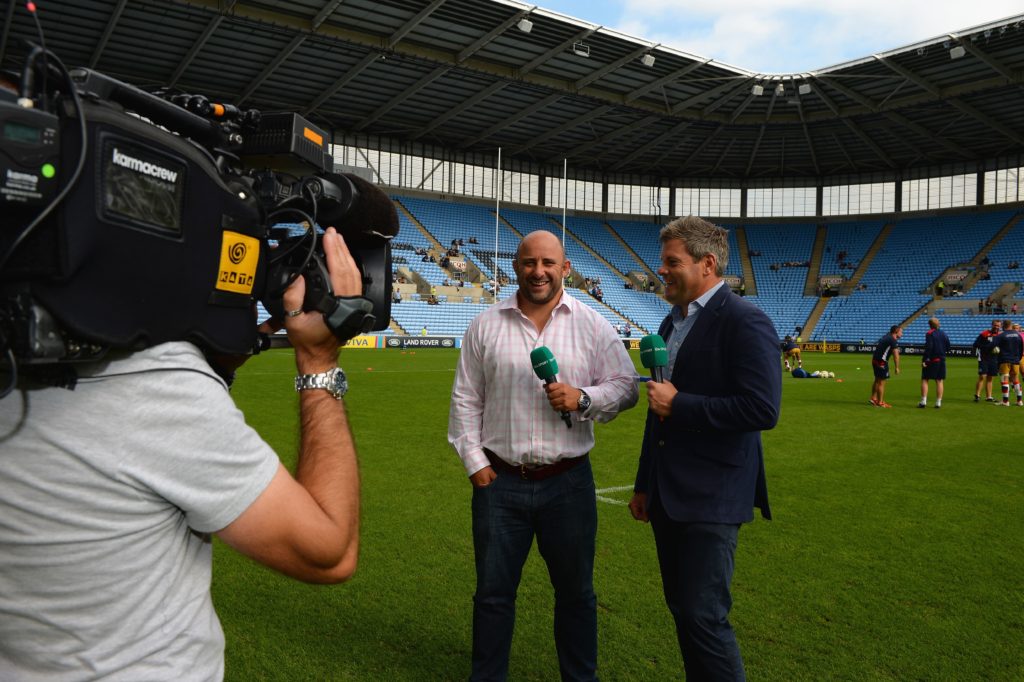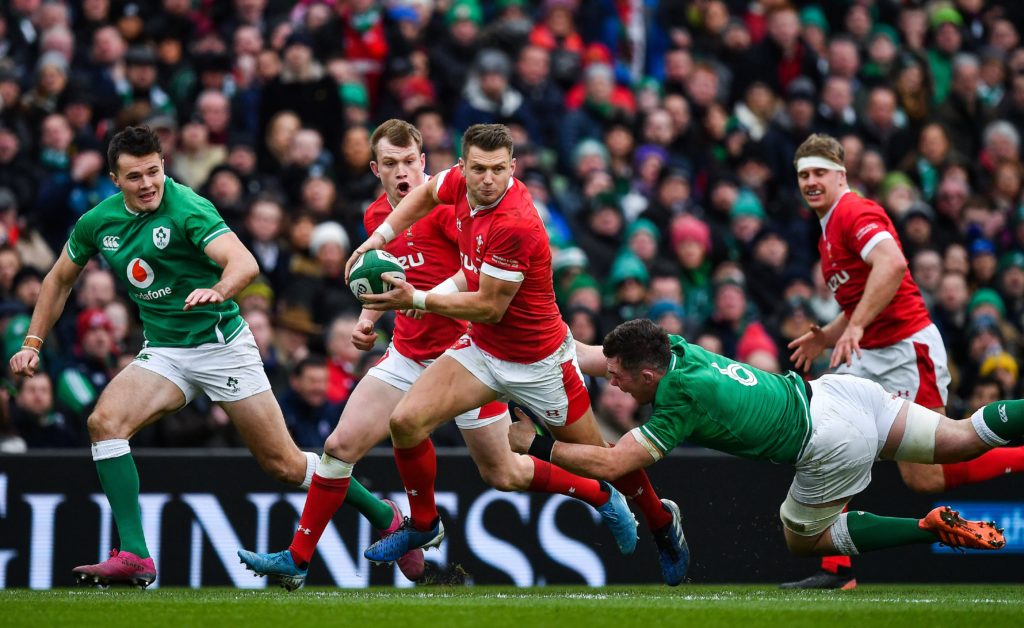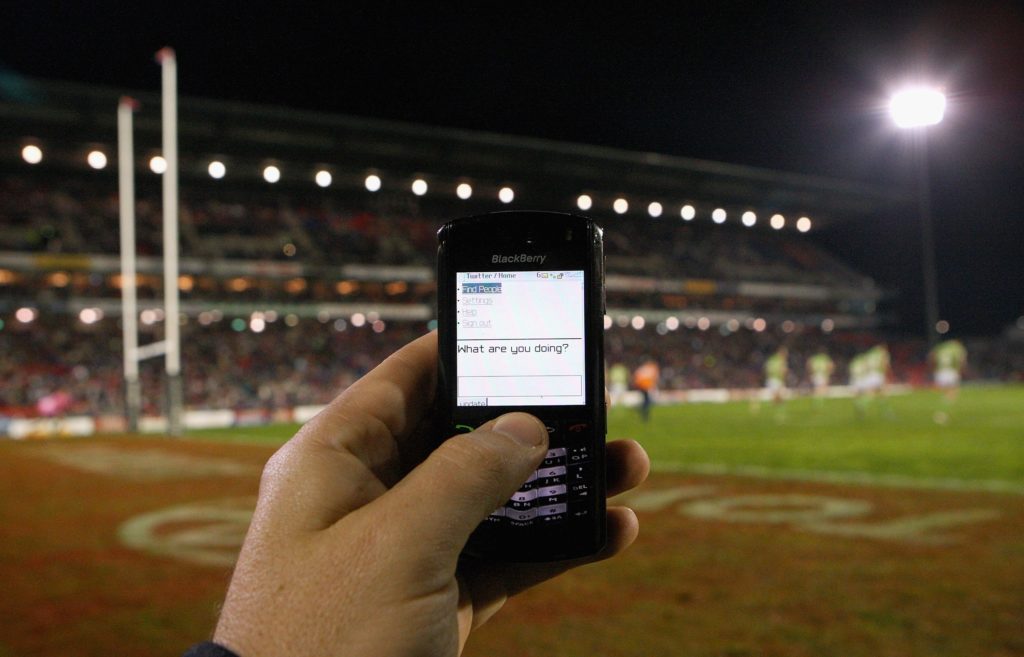I sent my beloved agent a message a few weeks ago and asked her to think carefully and objectively about whether or not I could get away with deleting my social media accounts. She rightly detected that my tone was a serious one and got to working out what I have and how much of what I have comes directly – or indeed indirectly – from social media.
When our diarised touching of bases came to pass, it was a succinct phone call: “No.”
Now, if you followed me on Instagram, you’d probably not know that I work in rugby. You might assume I am an amateur barbecue enthusiast who never actually went to work. On Twitter, though, conversations are often more pointed and opinions, for whatever reason, seem infinitely more plentiful. That is its beauty but also its curse.
I don’t hate all of social media; I actually love lots of it. I do not receive much abuse online, though what does pop up I really don’t like at all. I often feel unable to walk away without biting, with the consequence being a dip in mood and a visible shortening of my temper which, in turn, affects my time with my children and my ability to enjoy the rest of my day. I’ve had one or two folks try to generate Twitter pile-ons (one of whom was a mate who dressed it up with a ‘lol’ that fooled nobody) with their sole aim being my virtual cancellation and public obliteration but, thankfully, I remain a sufficiently small fish in an ocean of Twitter opinion.
My iPhone and the little apps within it draw me in; their algorithms control me, they own me. My addiction is low level, but I would not claim it to be under control because, frankly, it isn’t.
My two daughters are thrilled that I am approaching (at the time of writing) 100,000 followers on Twitter, yet it makes me feel mildly ashamed. I won’t pretend the shame is any more intense than this, as that would be disingenuous, but I certainly do not regard this apparent, synthetic milestone as any achievement whatsoever.
It is incredibly valuable to me, though, so to dismiss it as an arbitrary figure would be both ignorant and frankly naïve. My playing career was no great shakes, but what has seen me do whatever I’ve done in retirement has been entirely down to my having both something to say and the ability to say it with clarity. Being a commentator does not, despite what some may presume, require a stratospheric level of knowledge; it does require a sizeable amount, but it has as much to do with your communication skills as it is to do with how much you know.

To this end, there is an unwritten obligation for me regularly to offer views on the sport’s pressing matters, which is fine, but it is a pull. My iPhone and the little apps within it draw me in; their algorithms control me, they own me. My addiction is low level, but I would not claim it to be under control because, frankly, it isn’t. Twitter and Instagram steal me away from those whom I hold dearest and that is what I hate most of all. Well, that and knowing it’s happening and not ripping myself away which, as a pretty self-aware adult, leads to repeated micro-doses of disappointment in myself being dripped via chemical release into my endorphin-addicted brain.
There are many sides to the social-media-versus-real-life conversation, and I indeed often find myself feeling envious of friends who have forged successful careers in banking or charities or teaching; they just go to work then go home again and they don’t have Stuart from Suffolk telling them they’re crap, annoying or inexcusably wrong. They’re invisible, I imagine, and all the more fortunate for it.
This fun and these fees and these gifts only come about because I have a social media presence, so it’s a catch-22. Delete the apps and it all falls away, probably very quickly.
I work with some brands that I genuinely love – and whose employees have become real friends – and what I do for them (for me) isn’t difficult. In fact, it’s fun. I get paid to have a giggle, or I’m given ’freebies’ (there’s no such thing, believe me) that save me having to buy things and I know how lucky this makes me. But this fun and these fees and these gifts only come about because I have a social media presence, so it’s a catch-22. Delete the apps and it all falls away, probably very quickly. This doesn’t mean the brands don’t like me, it just means that nobody will see the content they are paying to create. I dig the work, require a wage and need the social. It’s that simple.
And because the value of a social media presence is so obvious to those involved in professional sport, many do their best to build one. Of course, there are some players who eschew the whole thing – Dan Biggar being my ultimate social media-denying hero – but most seem to realise that, even if they haven’t anything to say, or even any real interest in it all, they’d better do a bit because staying relevant is everything. I see players posting flattering photos of themselves on Instagram after matches – win or lose – with one of three presumably-templated ‘shame we didn’t get the result’ captions beneath, and I wonder how on earth they can do it with a straight face. Then I realise that were I still playing, that could be me (it wouldn’t, but you get my point…).

The ideal modern combination is probably a super-successful international player with nothing to say. That way, he will get all the deals and the gigs because he has a massive following based purely on his prominence and relevance, but he doesn’t need to flog himself online. He doesn’t need to reach or grab – or even engage – as it all comes to him. In a sense, it probably pays for him to be uninteresting, frankly, because it will prove so much less contentious.
It is 2021 and if you want to be heard – which, let’s face it, is what social media is all about – adopting an extreme position is where it’s at. Piers Morgan seems to be a ‘cock of the walk’, after all.
Most of us aren’t in that boat, though, so we have to graft with our virtual pickaxe a bit more and Twitter is the new coalface. This is a seam rammed to its gills, though, and I have definitely noticed the extremes to which some feel they must go to garner attention. The assumption from us milder folk is that this approach will one day swing back around and take a chunk from their objectionable derrières, but will it? I think it won’t, actually. I think that a lot of what people actually want to watch and read is confrontation and vitriol, and if nothing quite so strong, at least some antagonistic opinions on to which they can nail their flags.

It is 2021 and if you want to be heard – which, let’s face it, is what social media is all about – adopting an extreme position is where it’s at. Piers Morgan seems to be a ‘cock of the walk’, after all.
That doesn’t make me want to be less balanced in tone but it does leave me fearing that, soon enough, people like me will be considered too bland to bother with. I dread this in one way but I also feel thrilled at the prospect of having to pivot away from this synthetic, often-toxic space that steals me from real life. The notion of Twitter in particular soon becoming a kind of digital dystopian hellscape of football scores and ‘Nigel Farage’s Best anti-EU Speeches’ compilations isn’t so hard to imagine, so perhaps a pivot might soon become as much desired as forced.
Being a professional coach is something I can’t imagine taking on as the actions of others can end your career. At least if I say something so horrendous online that it gets me cancelled for good, I can own the error.
There are positive aspects to social media, like how efficient a source of news it has become; I never go to the BBC website before Twitter. If you like sport – which you do – there’s nothing like it for keeping up with your favourite team or leagues. And lots of it is rip-roaring fun.
At least my social media output – and with it, I suppose, a portion of my destiny – is in my own hands. Being a professional rugby coach, for example, is something I can’t imagine taking on, primarily as the actions of others can effectively end your career while you sit and watch from a seat 50 yards away. At least if I say something so horrendous online that it gets me cancelled for good, I can own the error. There’s something in that sense of ownership, but I feel I’m clutching straws as I search for a level of equilibrium that, in truth, I don’t quite believe exists in 280 characters. I think the bad outweighs the good, but I say that as one of the addicted mob. Again, it’s not an extreme addiction, but it’s a real one nonetheless.
Most days now I’ll be on social media and I’ll laugh out loud at something I see. I’ll also, most days, sit for a second and imagine getting rid of the lot and creating a new, anonymous Instagram account for grilled meat and Land Rover restorations only. Nobody would follow me, but I wouldn’t care. That dream is on pause, though, because, as said agent pointed out: “Do that and you’ll have to sell your fucking house, mate.”
There’s the rub.
More stories from David Flatman
If you’ve enjoyed this article, please share it with friends or on social media. We rely solely on new subscribers to fund high-quality journalism and appreciate you sharing this so we can continue to grow, produce more quality content and support our writers.



Comments
Join free and tell us what you really think!
Sign up for free